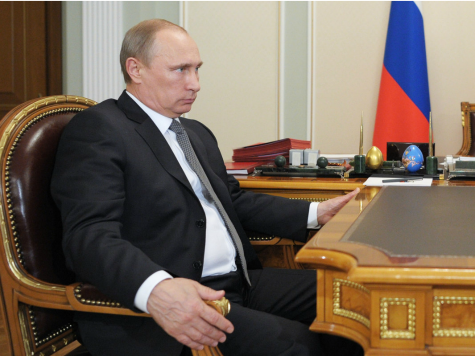The Russian government has announced it will “protect” Russian speakers abroad, specifically mentioning the Russian-speaking population of the Baltics. This is not the first time Russia has hinted that it would involve itself in the affairs of Lithuania, Latvia, and Estonia since Russian President Vladimir Putin annexed Crimea from Ukraine in March.
Konstantin Dolgov, Russia’s foreign ministry chief monitor of human rights overseas, warned of Russia’s potential involvement while in Latvia’s capital of Riga for the Regional Conference of Russian Compatriots, Latvia, Lithuania, and Estonia. He emphasized that Russia’s top priority is to protect ethnic Russians all over the world.
“It has to be stated with sadness that a huge number of our compatriots abroad, whole segments of the Russian world, continue to face serious problems in securing their rights and lawful interests,” he said. “One of the obvious and, perhaps, key reasons for this state of affairs is the unrelenting growth of xenophobic and neo-Nazist sentiments in the world.”
Dolgov used the new government in Ukraine as the prime example of the rise of “xenophobia.” Throughout the Ukraine conflict, Russian officials have claimed the pro-European Union side of the conflict was overrun with neo-Nazis, using that as an excuse to push their way into Ukraine. This was the justification for entering into and annexing Crimea right under Ukraine’s nose, since the Black Sea peninsula is home to over 50% ethnic Russians.
It does not make a difference to Russia that the three countries belong to the EU and NATO, which binds NATO countries to lend military aid should their sovereignty be compromised. When visiting Estonia in early September to meet with Baltic leaders, President Obama promised the three nations the United States is committed to their security.
“We will defend our NATO allies, and that means every ally,” said Obama. “We will be here for Estonia. … You lost your independence once before. With NATO, you will never lose it again. One of our goals at the summit over the next several days is to once again project unity across NATO on behalf of Ukraine’s efforts to maintain its sovereignty and territorial integrity.”
In March, Russian Ambassador to Latvia Aleksandr Veshnyakov told Latvian Radio 4, a Russian-language station, that Moscow wants “to save the Latvian non-citizens out of poverty by giving them citizenship and a pension without having to stay in Russia.”
A few weeks later, a Russian diplomat told the United Nations Human Rights Council that Russia did not approve of Estonia’s treatment of Russian speakers because the government wished for the citizens to speak Estonian. The unnamed diplomat said “[L]anguage should not be used to segregate and isolate groups.”
Russia recently reopened criminal cases against Lithuanians who refused to serve in the Soviet Army in 1990-1991. The government warned citizens not to travel to non-EU and non-NATO countries. Erika Leonaitè, an international law expert in Lithuania’s capital of Vilnius, said that “one must stress that when the USSR annexed the territory of Lithuania, it did not abolish the latter’s statehood and did not acquire any rights to the Lithuanian territory.” Consequently, Leonaitè asserted, “citizens of the Republic of Lithuania were not bound by duties to the Soviet Union, including the duty to serve in its armed forces. So there is no basis to talk about their liability for refusing to serve in the Soviet army, either before or after 11 March 1990.”
Lithuania declared independence from Russia in March 1990. Over 1,500 men decided not to join the Soviet Army. Men hid from officials, but many were arrested. The outstanding warrants were dropped when the Soviet Union collapsed, however.
Lithuania refuses to forget the war crimes the Soviet Union committed during their rule. In March, Lithuania arrested 45-year-old Russian Yuri Mel over alleged 1991 war crimes after “[F]ourteen civilians died and hundreds were injured when Soviet Forces attacked the Vilnius television tower on January 13, 1991.”
Lithuania was the first Soviet state to secede from the Soviet Union in 1990.

COMMENTS
Please let us know if you're having issues with commenting.